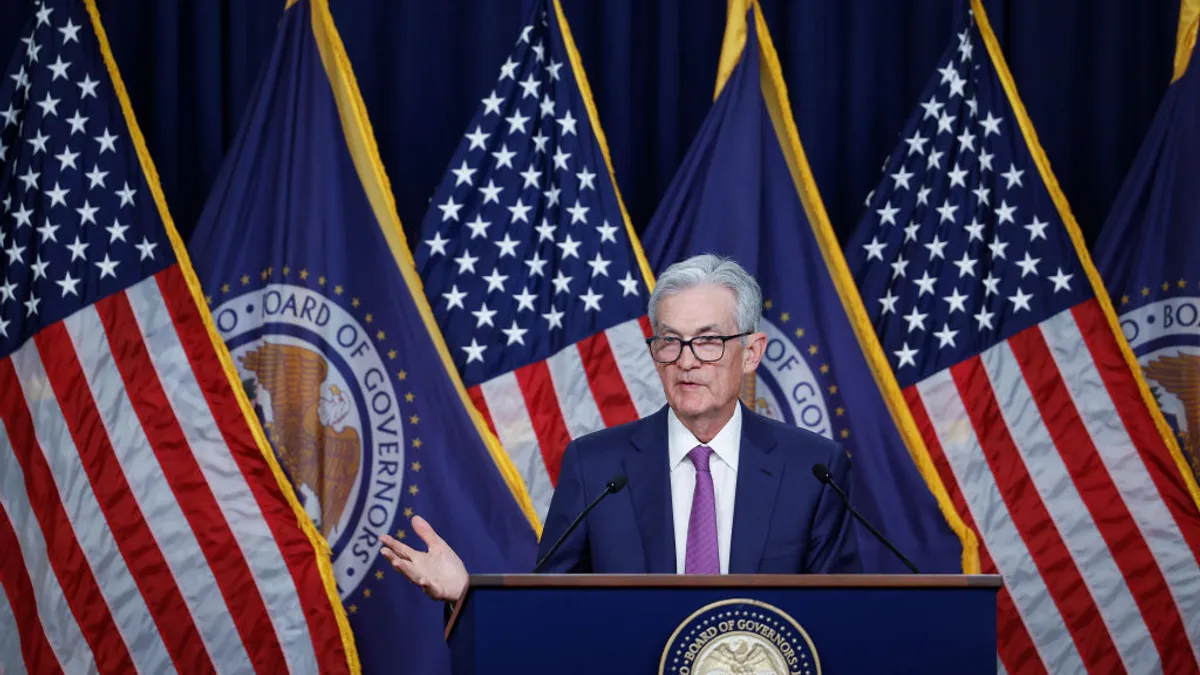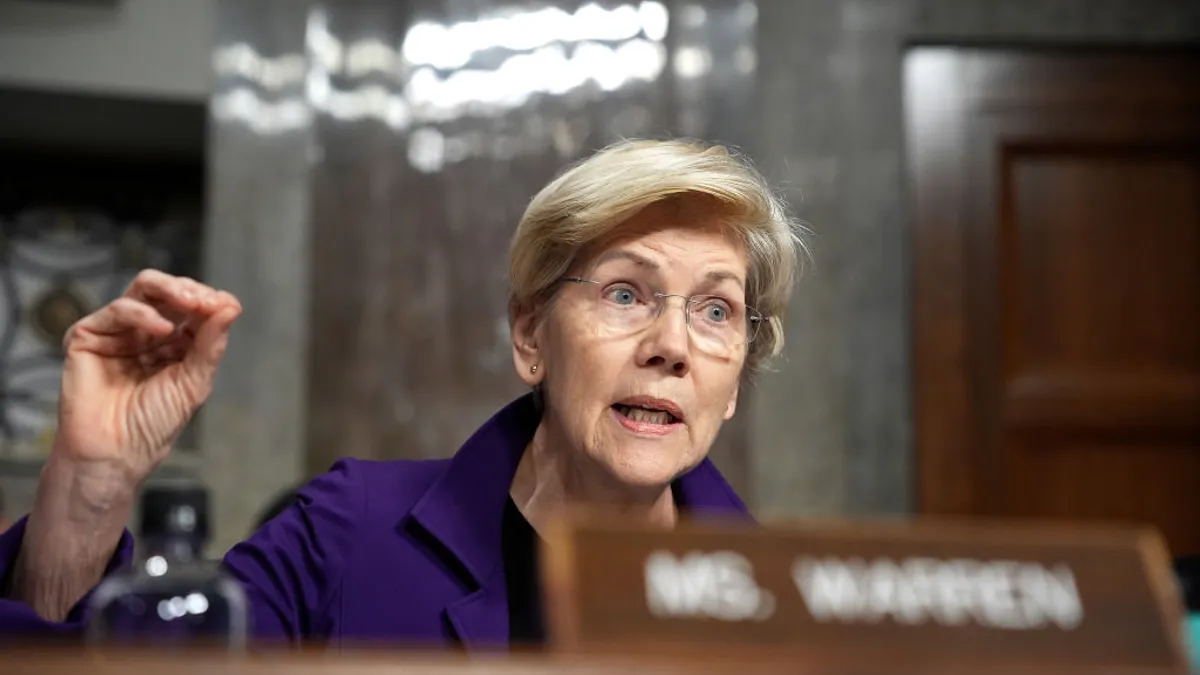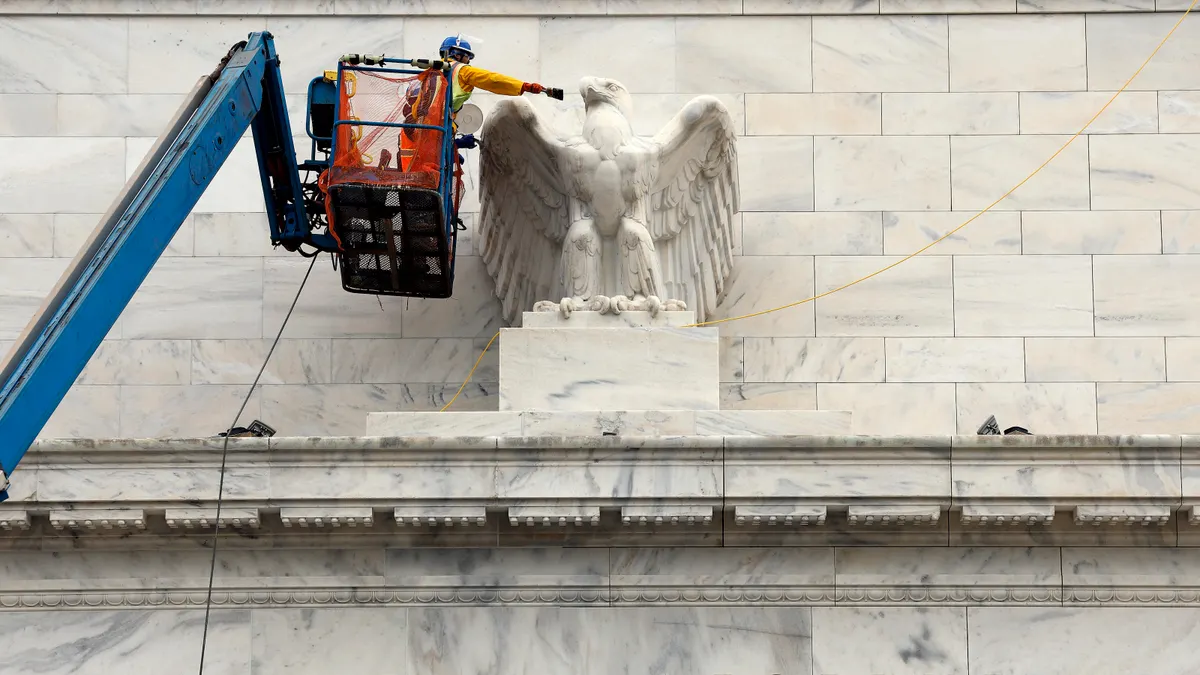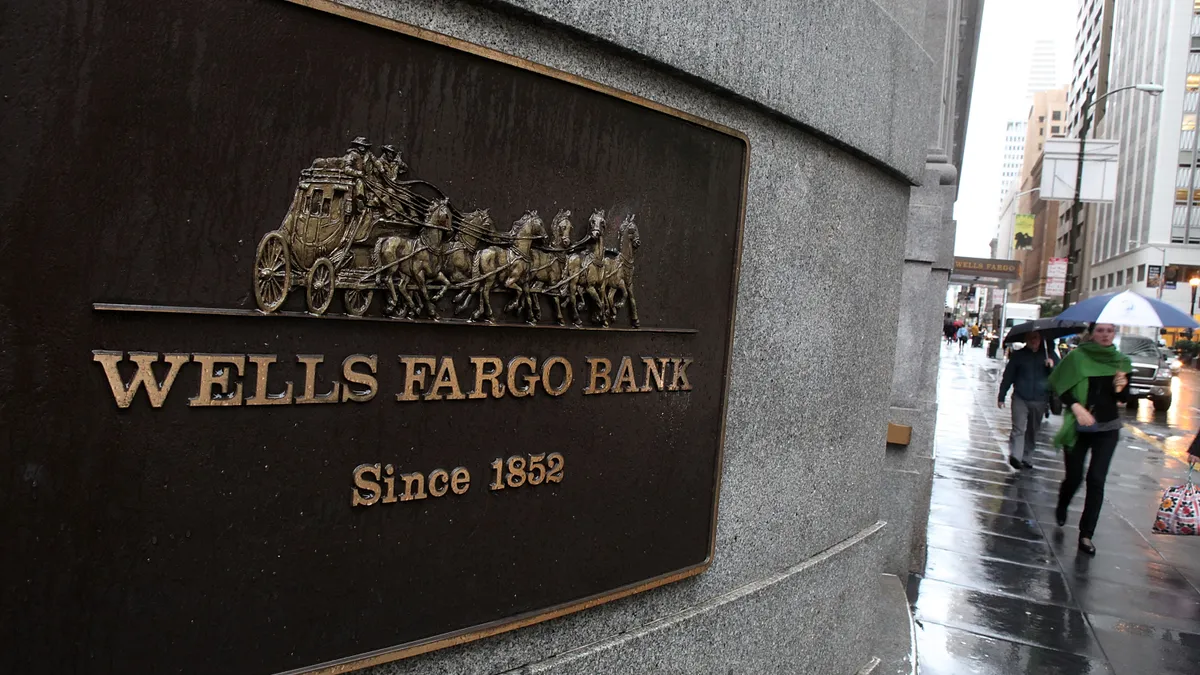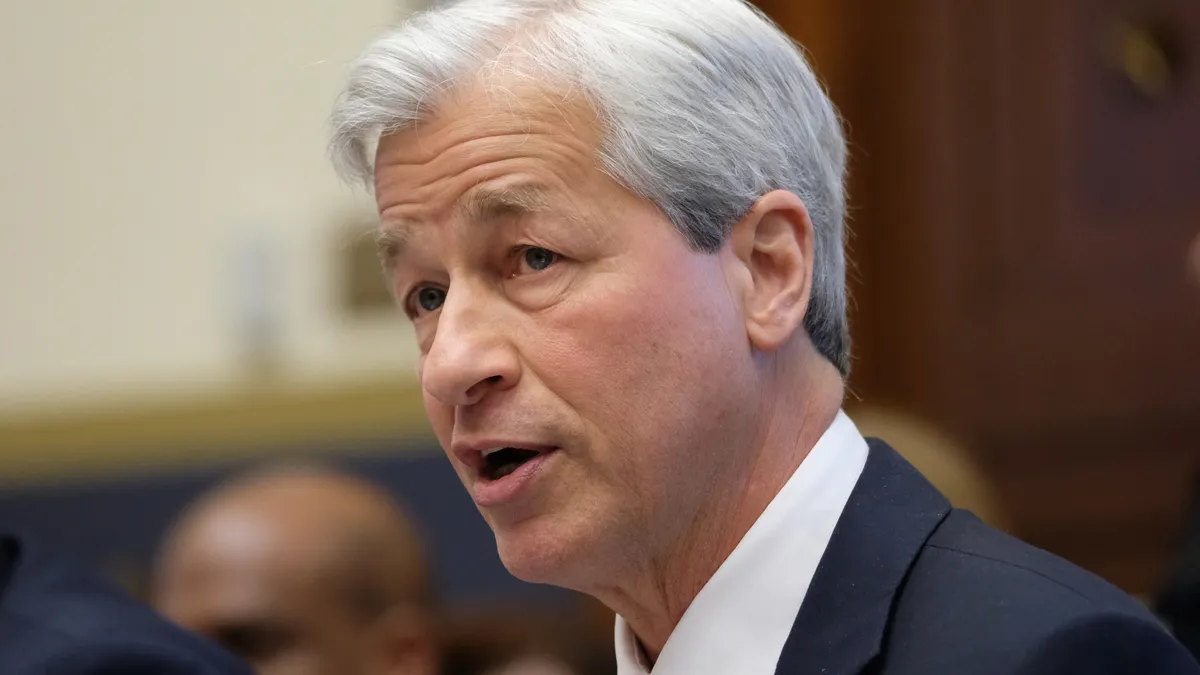In-the-moment coverage of Federal Reserve Gov. Adriana Kugler’s resignation Friday might have overplayed the “surprise” element of it.
The first clue that something was amiss came in the last line of the central bank’s release Wednesday regarding the Federal Open Market Committee’s decision to keep interest rates steady. “Absent and not voting was Adriana D. Kugler,” the line read.
Kugler, whose term on the Fed board was due to expire in January, will leave her post Aug. 8 to return to Georgetown University as a professor this fall, the central bank noted in a release Friday.
Her departure gives President Donald Trump the chance to tap a Fed nominee five months sooner than previously expected. He may choose a candidate in “the next couple of days,” the Financial Times reported Sunday. And he may use the pick to bring aboard the person he intends to install as chair when Jerome Powell’s term as chief expires in May.
“I just found out that I have an open spot on the Federal Reserve Board. I’m very happy about that,” Trump told reporters Friday, adding that he believes Kugler is leaving because “she disagreed with ‘Too Late’ [Powell] on the interest rate.”
The argument against Trump’s logic is that if that were the case, Kugler could have written a dissenting opinion. Each of the two FOMC members who voted against Wednesday’s interest-rate decision did.
But beyond that, any reading of Kugler’s recent views would show she favors holding the rate steady.
“Given the stability in the employment side of our mandate, with the unemployment rate still at historically low levels, elevated short-run inflation expectations, and goods inflation rising due to the upward pressure from tariffs, I find it appropriate to hold our policy rate at the current level for some time,” Kugler told the Housing Partnership Network Symposium last month.
If anything, Kugler’s resignation letter to President Trump may have shown a nod of solidarity toward Powell, even across party lines.
“I also want to thank Chair Powell for his unwavering commitment to the Federal Reserve and the American people,” Kugler, a Biden nominee, wrote of her Republican colleague.
A quiet Thursday
Perhaps more striking than the Kugler “surprise” may have been the pace of reaction to Wednesday’s interest-rate decision: Trump waited until Thursday morning to rail against Powell.
“Jerome ‘Too Late’ Powell has done it again!!!” Trump wrote on Truth Social. “He is TOO LATE, and actually, TOO ANGRY, TOO STUPID, & TOO POLITICAL, to have the job of Fed Chair. … Put another way, ‘Too Late’ is a TOTAL LOSER, and our Country is paying the price!”
The Fed, meanwhile, was quiet. Fed Vice Chair for Supervision Michelle Bowman and Gov. Christopher Waller, who voted against holding rates steady, didn’t publish their dissenting opinions until Friday.
Longtime observers know that the Fed’s penchant for dropping big news on Friday has rankled some in the finance sphere.
Phillip Basil of the nonprofit Better Markets in 2022 called out what he termed “a disturbing pattern that undermines the credibility” of the central bank – in noting that when the Fed disclosed that it had approved Webster Bank’s $5.1 billion acquisition of Sterling Bancorp, First Citizens’ $2.2 billion purchase of CIT, and M&T’s $7.6 billion acquisition of People’s United, all were announced on Friday afternoons.
“Such end-of-week, late-in-the-day announcements are a disservice to the public and beneath the proper role of the Fed,” said Basil, who later would join the Fed as lead financial institution policy specialist, then return to Better Markets after two years. “What is it trying to hide by releasing such important information at a time when it will get the least attention, media coverage, and scrutiny?”
This past Friday, however, the Fed may have out-Fridayed itself.
First and last words
The floodgates opened early.
“Jerome ‘Too Late’ Powell, a stubborn MORON, must substantially lower interest rates, NOW,” Trump posted just after 6:30 a.m. Eastern time. “IF HE CONTINUES TO REFUSE, THE BOARD SHOULD ASSUME CONTROL, AND DO WHAT EVERYONE KNOWS HAS TO BE DONE!”
“STRONG DISSENTS ON FED BOARD. IT WILL ONLY GET STRONGER! ‘TOO LATE!’” he posted roughly 90 minutes later.
“Too Little, Too Late. Jerome ‘Too Late’ Powell is a disaster. DROP THE RATE! The good news is that Tariffs are bringing Billions of Dollars into the USA!” Trump posted after another 40 minutes.
It was around this time that Bowman and Waller’s dissents became public on the Fed website. It should be noted, too, that their dissents marked the first time that two Fed governors wrote statements disagreeing with the interest rate-setting decision since 1993.
“With tariff-related price increases likely representing a one-time effect, it is appropriate to look through temporarily elevated inflation readings,” Bowman wrote, arguing for a quarter-point reduction. “A delay in taking action could result in a deterioration in the labor market and a further slowing in economic growth. Taking a proactive approach in moving closer to neutral would avoid an unnecessary erosion in labor market conditions and reduce the chance that the Committee will have to carry out a significantly larger policy correction at a future date.”
Both Bowman and Waller – who also called for a quarter-point cut – hedged that there was room for debate.
“I fully respect the views of my colleagues on the FOMC that suggest we need to take a ‘wait and see’ approach regarding tariffs' effects on inflation,” Waller said, calling such differences of opinion a sign of “a healthy and robust policy discussion.”
“But I believe that the wait and see approach is overly cautious, and, in my opinion, does not properly balance the risks to the outlook and could lead to policy falling behind the curve,” Waller said. “When labor markets turn, they often turn fast.”
News, too, turns fast, and by late afternoon, Kugler’s resignation also was public.
If society has learned anything from the second Trump administration, it could be that having the first or last word on a matter carries some value. Indeed, Powell’s chief detractor, Federal Housing Finance Agency Director Bill Pulte, posted Kugler’s resignation letter on X on Friday with a red siren emoji alongside it for emphasis.
At the last-word end of the spectrum, Trump posted: “‘Too Late’ Powell should resign, just like Adriana Kugler, a Biden Appointee, resigned. She knew he was doing the wrong thing on Interest Rates. He should resign, also!”
One seat among 12
If Wednesday’s FOMC vote is an indicator, one vacancy won’t reap wholesale change. Kugler’s vote wouldn’t have changed the outcome – and neither would a Trump nominee’s.
Even if Trump were to nominate someone, and bureaucracy were to defy time, such that that nominee would be confirmed before the next FOMC meeting in September – and vote to lower the interest rate – there are still nine other voters who may not.
Further, if that person were to someday become Fed chair, it’s not as though he or she could push for an immediate 3 percentage-point drop to where Trump would like to see the interest rate – and convince 11 other FOMC voters to go along with it.
Adam Posen, president of the Peterson Institute for International Economics in Washington, asserted that Kugler’s resignation is “not an action-forcing event.”
“The [Fed] board has functioned with fewer than seven members before, and the administration doesn’t seem to mind under-staffing essential positions,” Posen told Bloomberg.
Derek Tang, an analyst at the research firm LH Meyer, equated Kugler’s resignation to “calling Trump's bluff.”
"She's putting the ball in his court and saying, look, you're putting so much pressure on the Fed, and you want some control over nominees, well, here's a slot," Tang told Reuters.
It may not be that deep. It may simply have been easier to join Georgetown now, before the academic year, rather than in January.
Likewise, time may be central to interest-rate moves. Any lowering is more likely to be gradual. And observers should expect a greater number of (relatively quiet) Wednesdays or Thursdays than frenetic Fridays.


